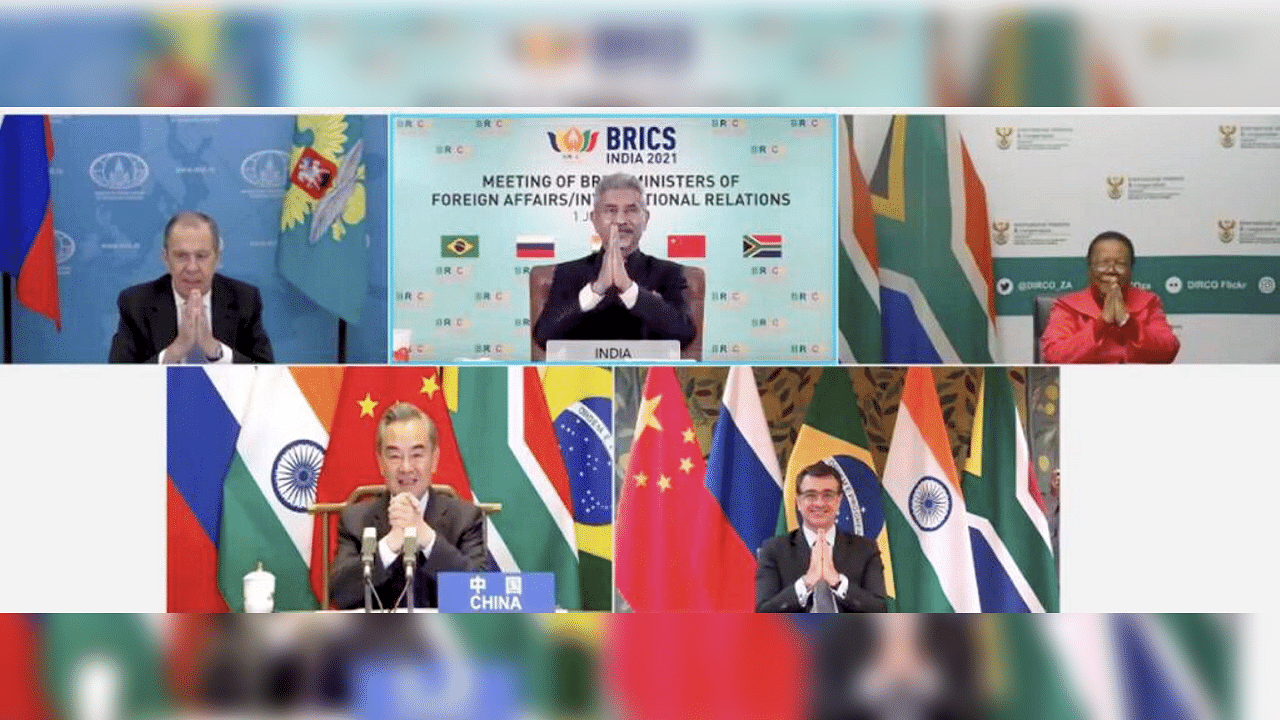
India is likely to tread cautiously on the expansion of BRICS as it apprehends that China may try to use the process of admitting new members into the five-nation bloc to widen its ambit of geopolitical influence.
Though Russia has thrown its weight behind China and supported the move, India is reluctant to be seen as an active participant in the bid by the two to project the bloc as an alternative to G20.
India will take over the G20 presidency from Indonesia on December 1. With Prime Minister Narendra Modi set to host the leaders of 19 other member nations as well as of the European Union for the summit in October or November next year, India is not as zealous as Russia and China to expand BRICS, a source in New Delhi told DH.
Brazil, Russia, India and China had launched ‘BRIC’ in 2009. The bloc turned into BRICS, with South Africa formally joining it in 2011.
The move to expand BRICS gained momentum amid tensions between the US-led West and Russia over the latter’s military aggression against Ukraine. With their ties deepening over the past few months, Russia backed China’s push for expansion of BRICS when Xi Jinping held the presidency of the bloc.
The source told DH that New Delhi was not particularly opposed to admitting Iran and Argentina, which were the first two nations to formally seek BRICS membership. But what India conveyed to China, Russia and other BRICS members was that the bloc should first hold consultations among its existing constituents to set the criteria for admitting new members, said the source. He added that New Delhi would not want the process to be misused to serve the geopolitical interests of a section within the bloc and any move towards expansion should be based on consultation and consensus within the bloc.
India does not want to disturb the strategic balance in its ties with Russia on the one hand and with the US and other western nations on the other. It, however, drew flak from the West for not condemning Russia for its aggression against Ukraine.
Modi had a bilateral meeting with Argentine President Alberto Fernandez on the sidelines of the G7 summit in Germany last week. External Affairs Minister S Jaishankar hosted Iranian Foreign Minister Hossein Amir-Abdollahian in New Delhi on June 8.
Iran and Argentina were among the 13 nations invited by China to attend an outreach event held on the sidelines of the virtual BRICS summit Chinese President Jinping chaired on June 24.
China also wanted to invite Pakistan, but finally refrained from doing so, apparently due to objections raised by India.
Modi virtually attended the summit, along with President Vladimir Putin of Russia, President Jair Bolsonaro of Brazil and Cyril Ramaphosa of South Africa.
The Beijing Declaration issued after the summit largely reflected New Delhi’s view on the expansion of the BRICS. It stressed on discussions among the BRICS members on the expansion of the bloc. It also emphasized on the need to clarify the guiding principles, standards, criteria and procedures for admission of new members.
